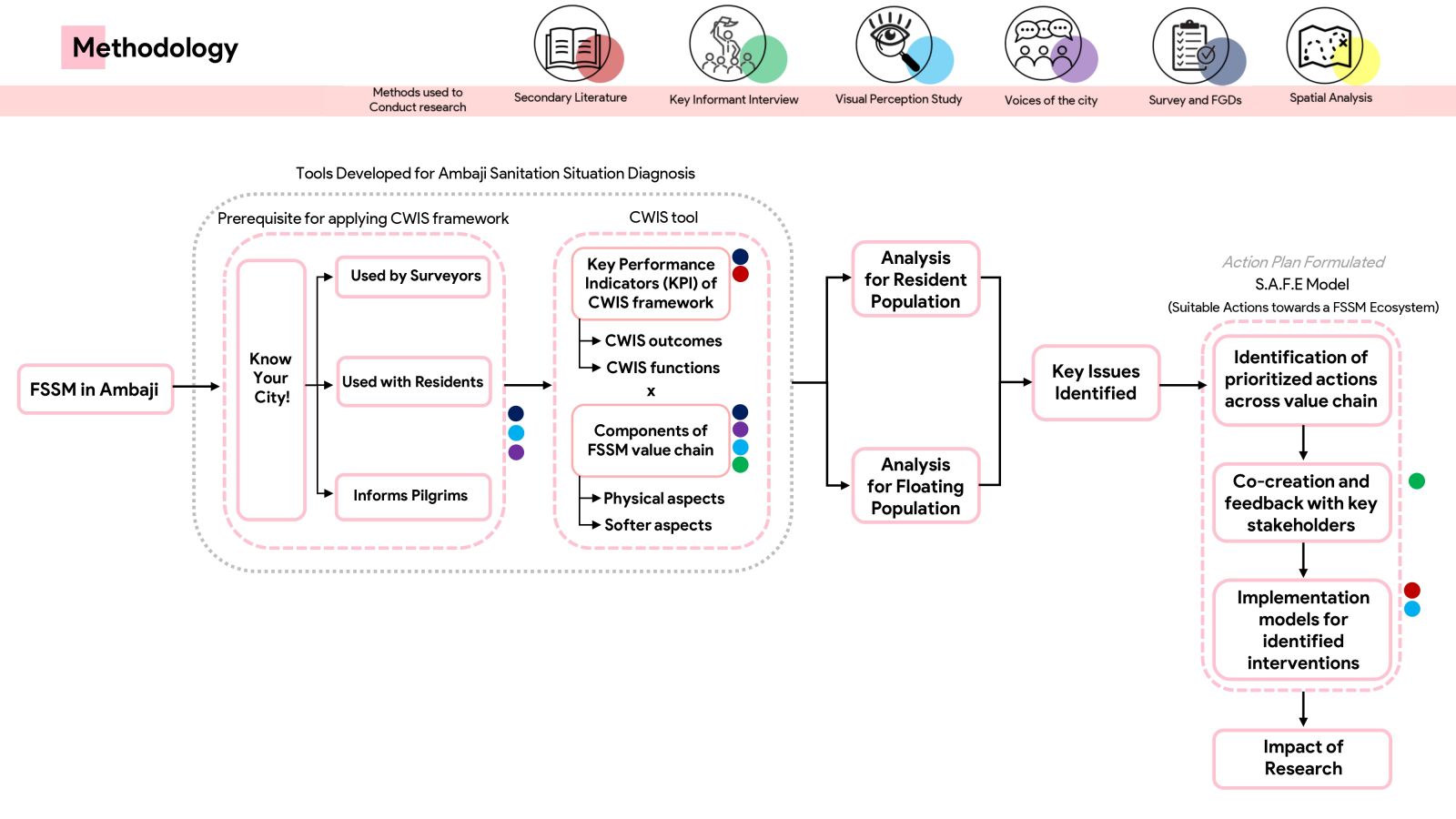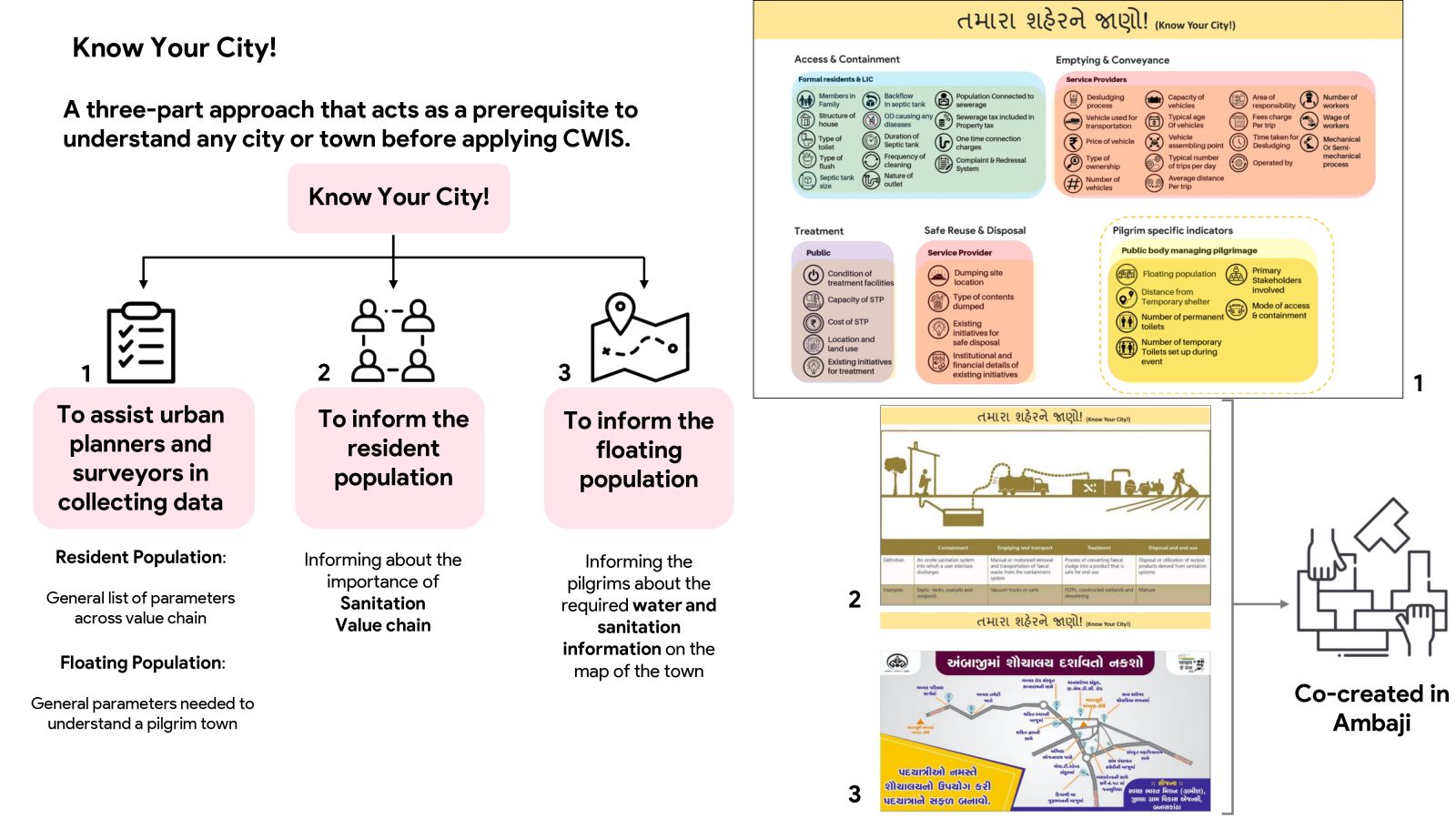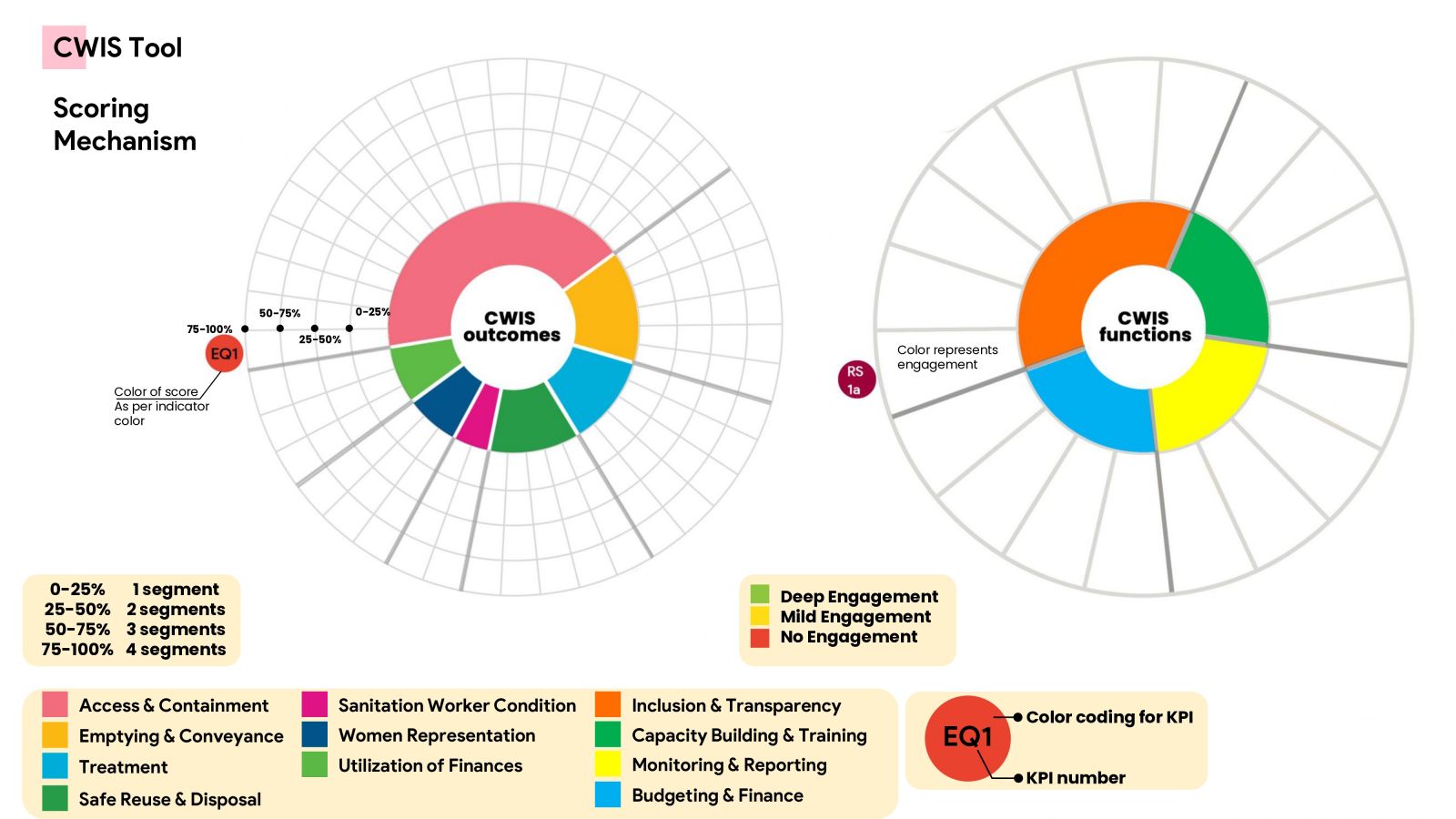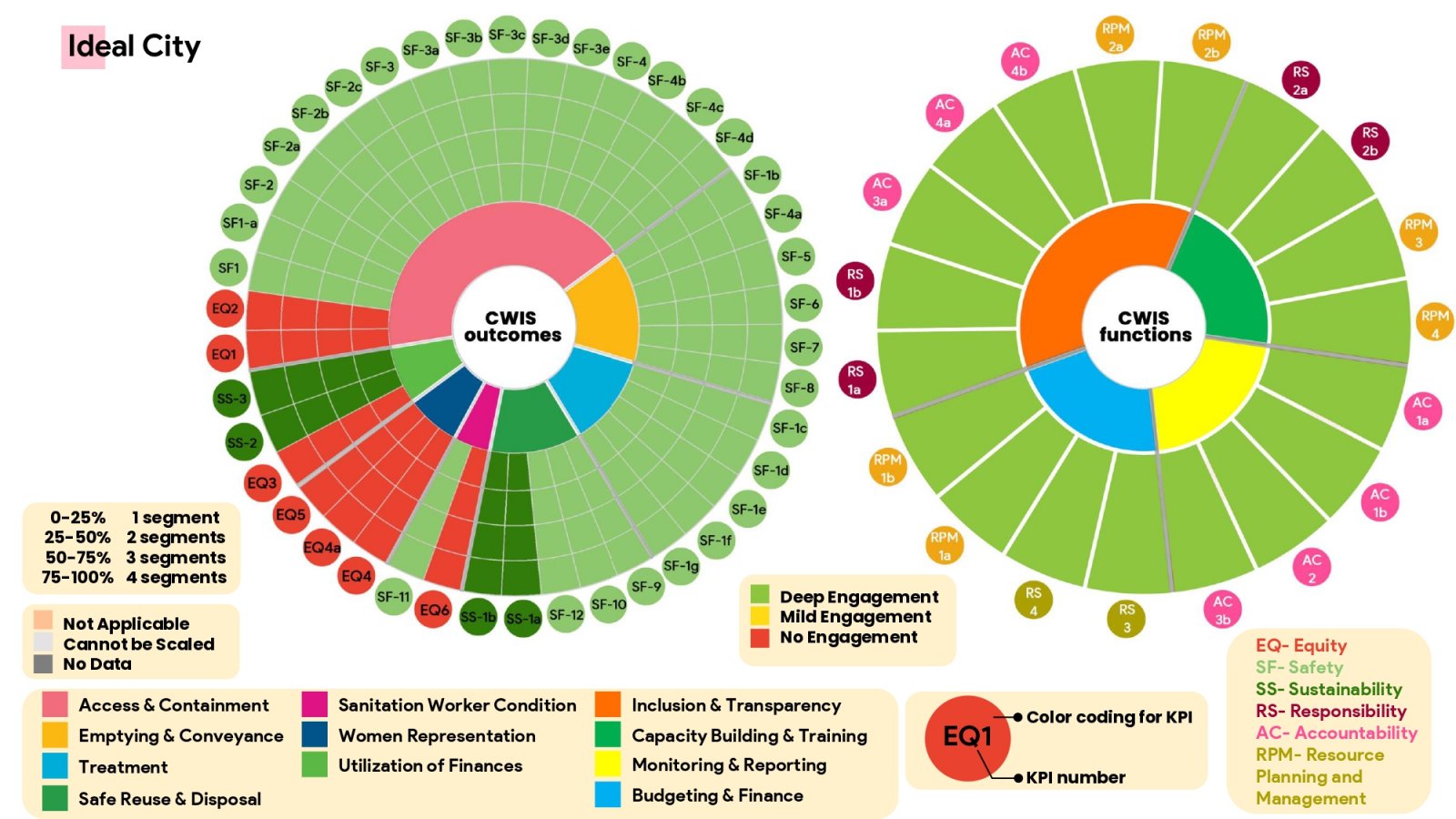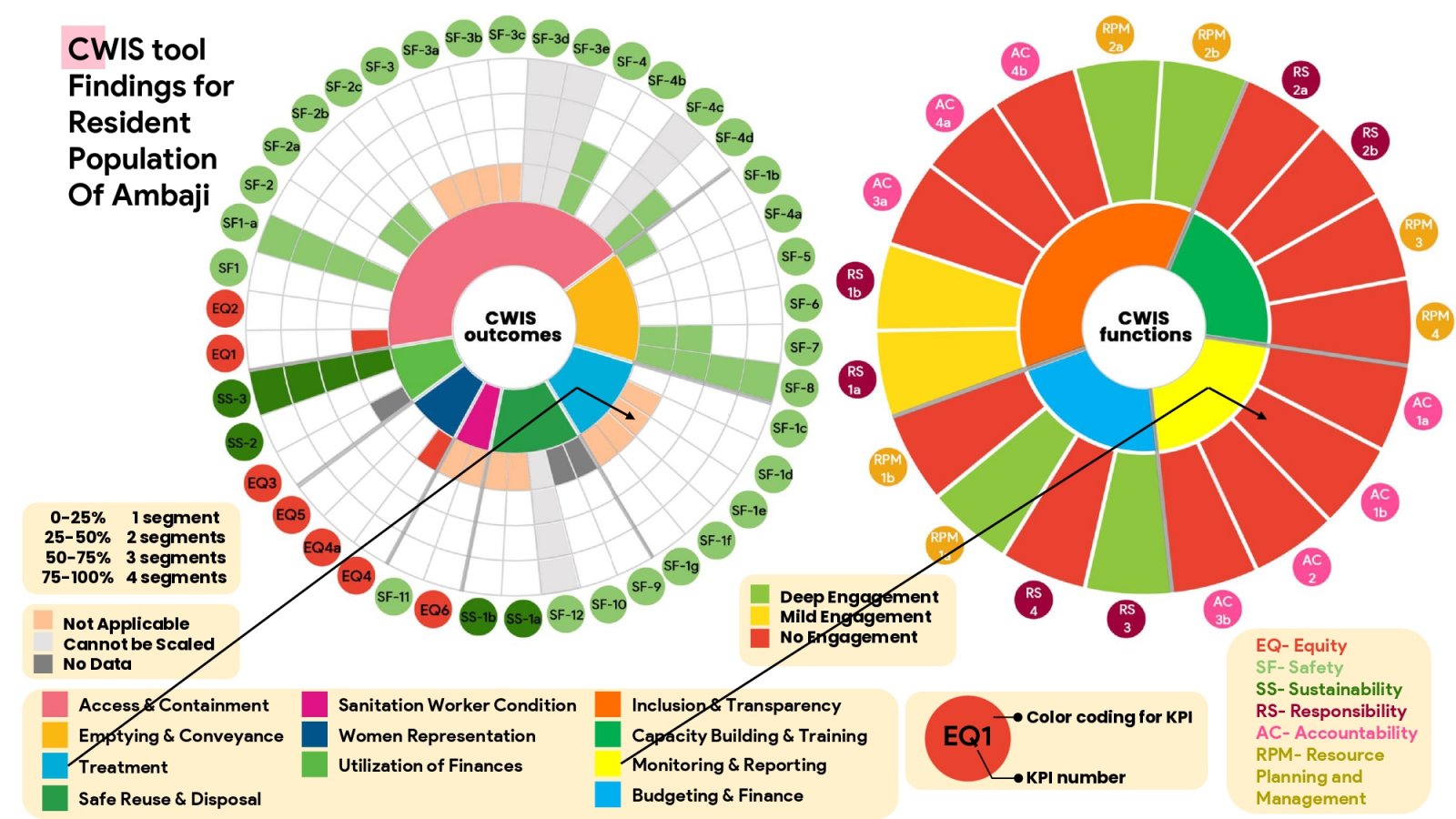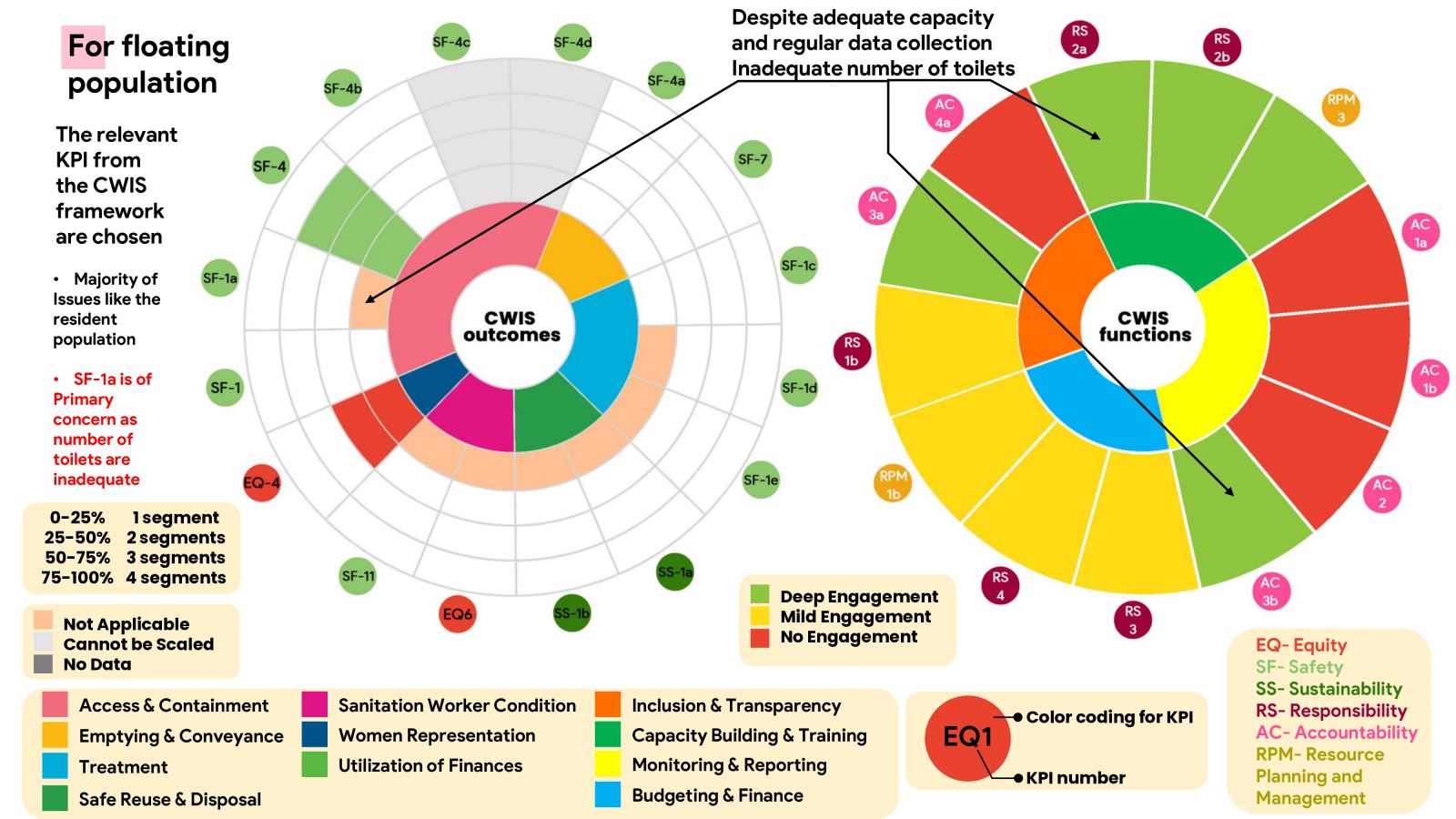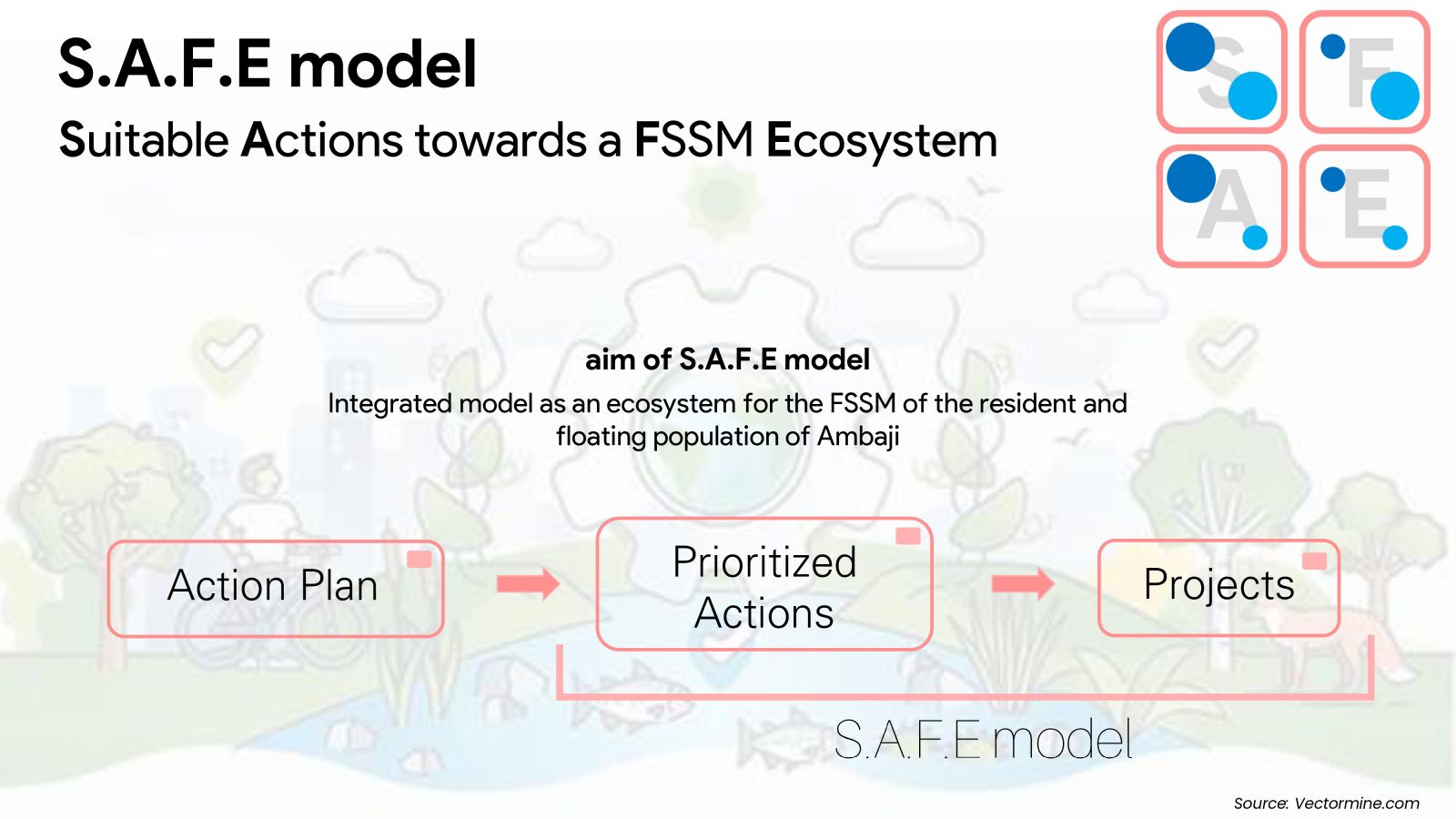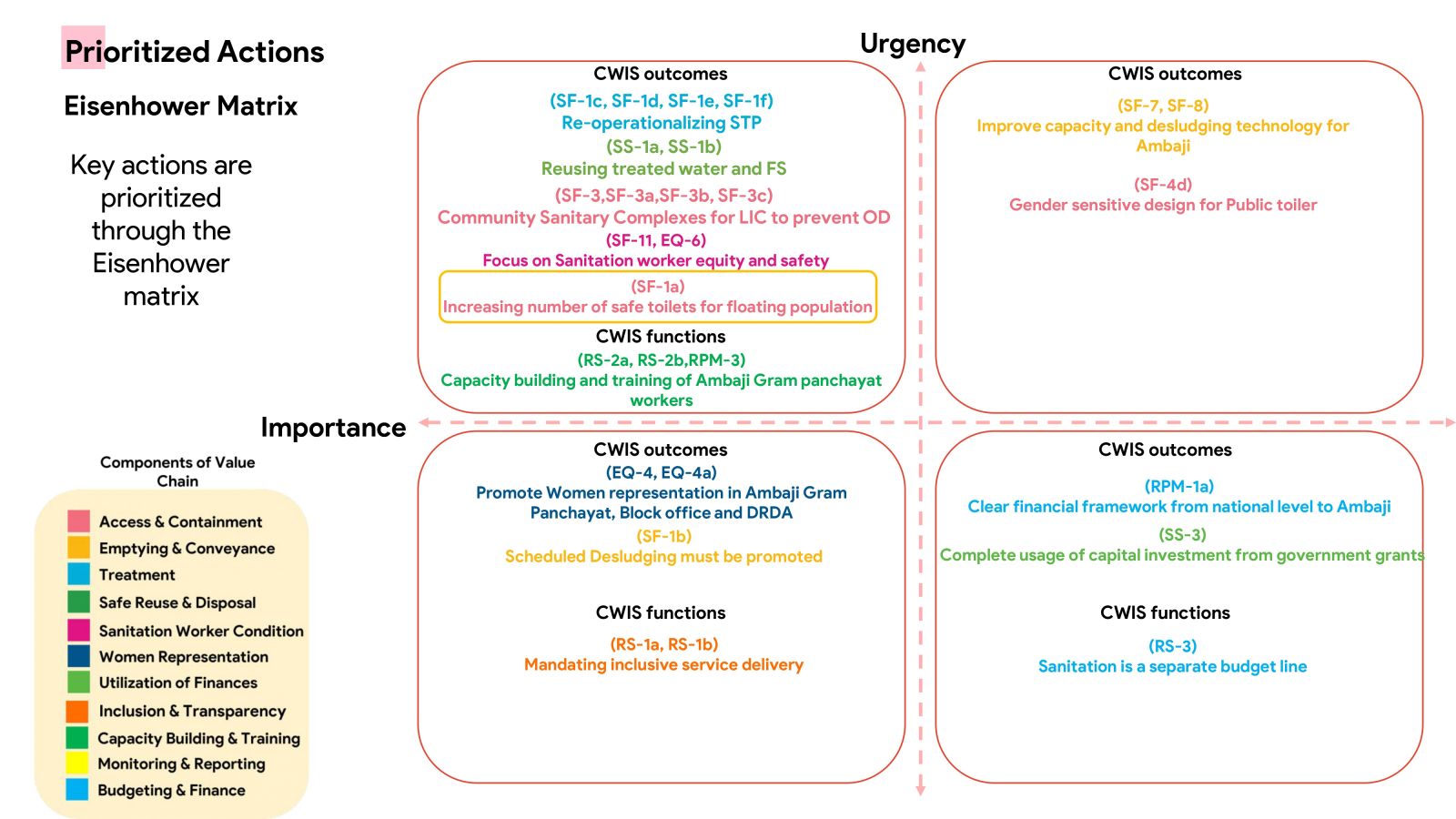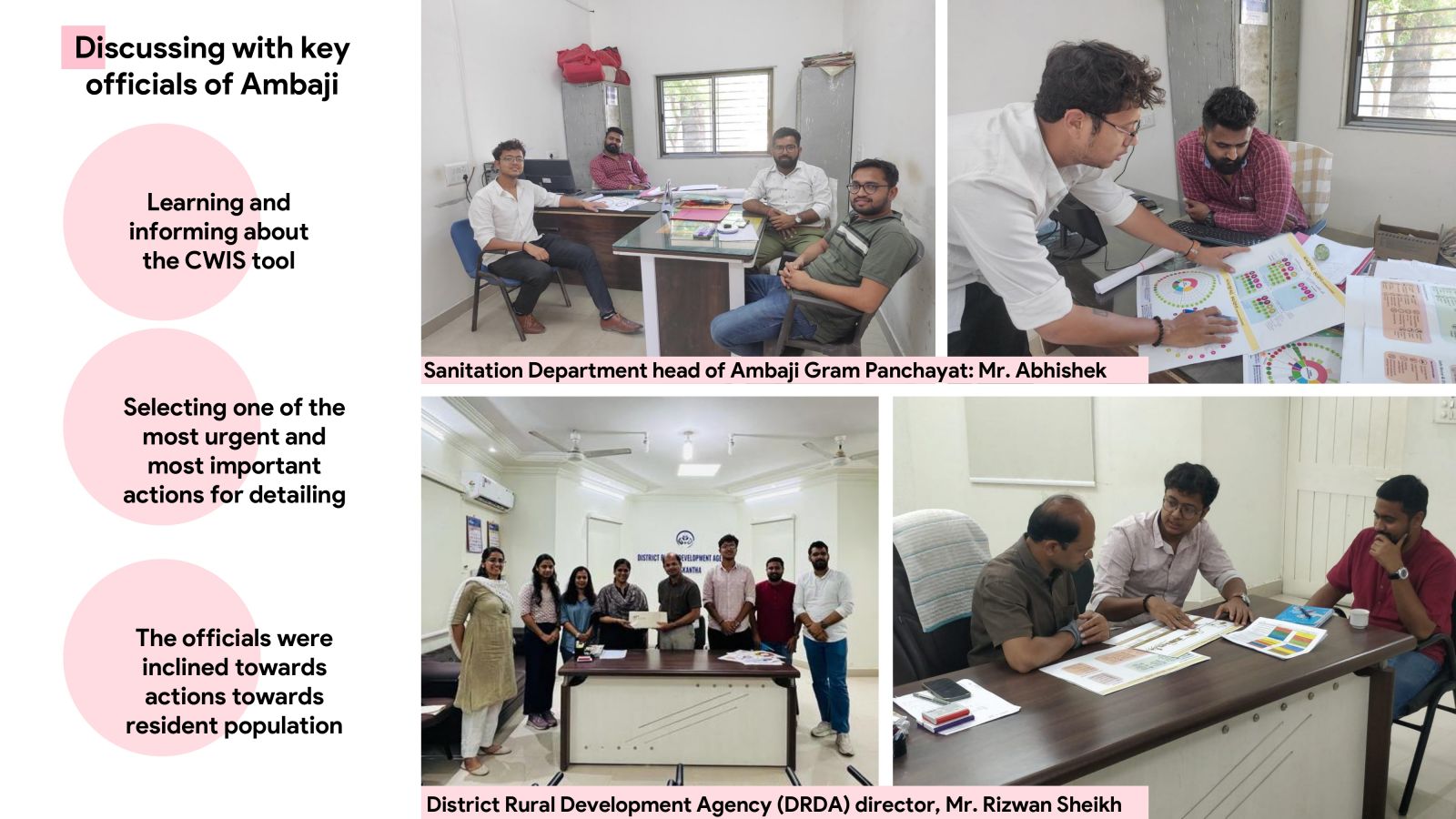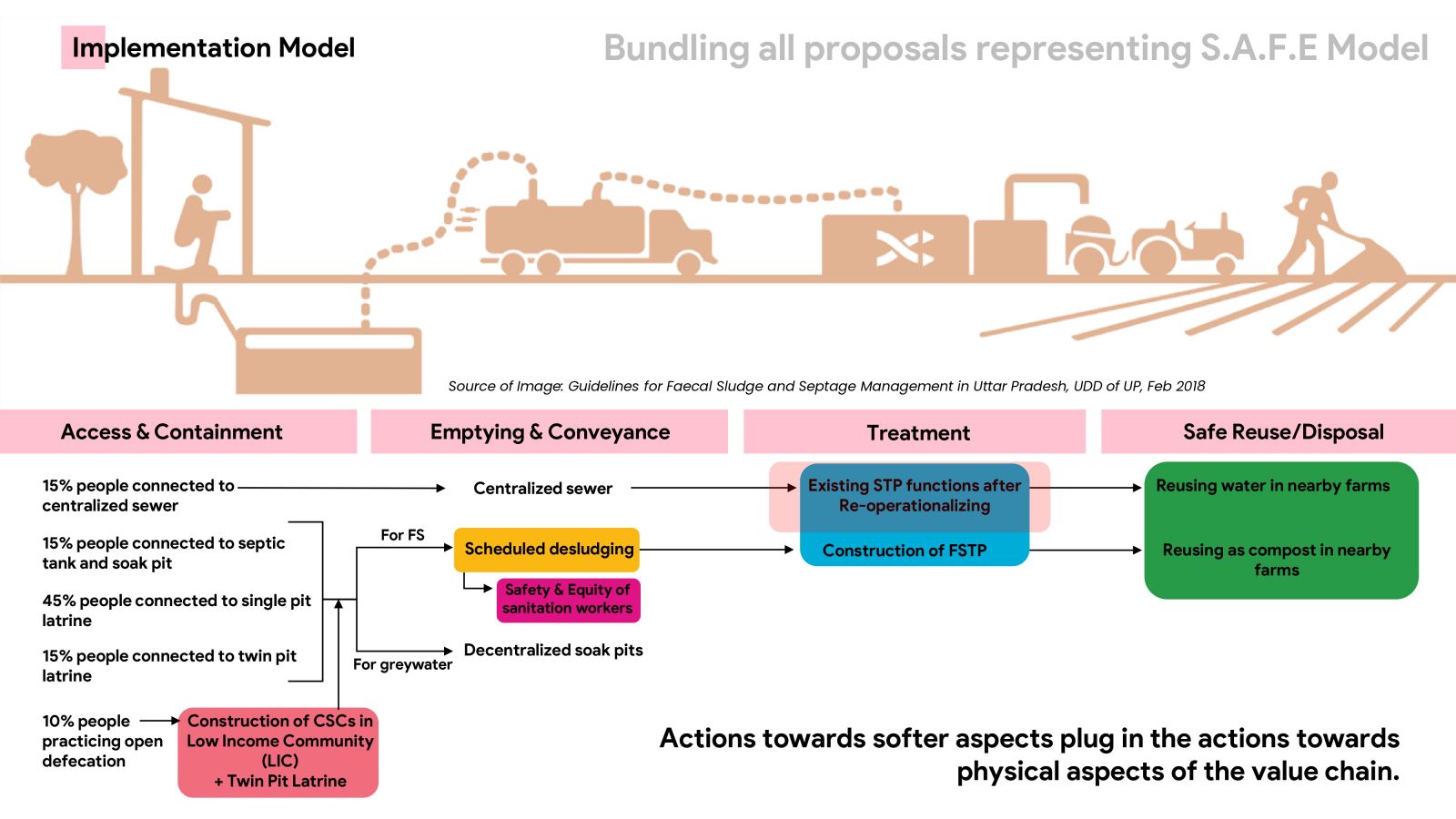Your browser is out-of-date!
For a richer surfing experience on our website, please update your browser. Update my browser now!
For a richer surfing experience on our website, please update your browser. Update my browser now!
The research revolves around addressing three crucial aspects. Firstly, understanding the Faecal Sludge and Septage Management (FSSM) sector, a waste stream with the highest potential for spreading diseases. Secondly, understanding the emergence of the Citywide Inclusive Sanitation (CWIS) plan by Bill and Melinda Gates Foundation (BMGF) and discussing its implementability through its Key Performance Indicators (KPI). Lastly, assessing the FSSM value chain through the KPI of CWIS framework in the small pilgrim town of Ambaji, located in the North Gujarat. The town has a resident population of 0.2 Lakh (0.02 million or 22,000), however annually during the Bhadarvi Poonam Mela (BPM), a pilgrim event in the month of September, for a duration of about 15 days, the town receives a floating population roughly about 136 times more than its resident population. This calls for a dire need of an action plan for the FSSM sector in the pilgrim town of Ambaji by testing the CWIS framework. This is done by developing tools that address certain limitations of the framework and help in analysing the resident and floating population of Ambaji to identify key issues. The action plan is formulated by identifying prioritized actions across the value chain for the resident and floating population and discussing them with the key officials of Ambaji local government through co-creation. The co-creation exercise informs about the most urgent and prioritized action that is needed to be taken and an implementation model for the same is developed. The research concludes by discussing the impact.
